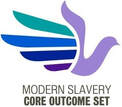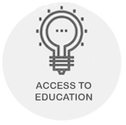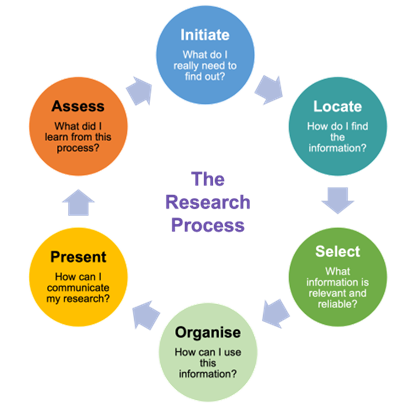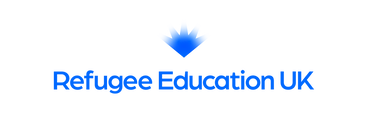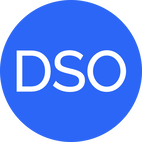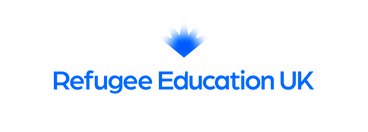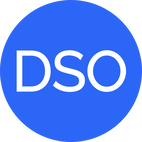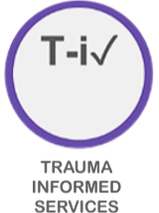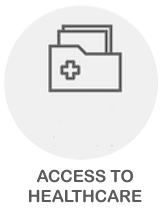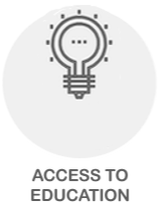"Many of us have missed out on education due to being trafficked. Access to education enables us to feel confidence and fulfilment as well as helping us towards paid employment, needed friendships and networking. It is a big step towards remaining safe and beginning a new life."
"Many of us have missed out on education due to being trafficked. Access to education enables us to feel confidence and fulfilment as well as helping us towards paid employment, needed friendships and networking. It is a big step towards remaining safe and beginning a new life."
|
Mimi Jalmasco explains the inclusivity of education for survivors.
|
x
Education for children about the dangers of trafficking should start early in school to help prevent it, otherwise vulnerable children can end up involved with drugs, drink, dangers on the internet, getting into cars with strangers and no one is looking out for them. Children and young people need to be helped to know who traffickers are, and how they operate, so they can recognise trafficking crime before they can be targeted and it is already too late. I never had these warnings in my education and I know that children don't today. Although there are general warnings in education about dangers for children and young people, there is no real depth of understanding of the realities of trafficking crime. |
x
College is my safe space – it is a distraction for me, it is a better thing for me to spend my time doing rather than being in four walls and my mental health deteriorating. When a person has knowledge, they have confidence, then skills, then they are able to socialise and that makes a difference to their mental health because they are not alone. Colleges know trafficking exists, but they don't really know in depth what causes it. It's dangerous for them not to have more knowledge and a trafficking-awareness policy, because they need to be aware of what students may be going through - they may be in a position to help that person and could prevent their disappearance, even save their life. Young survivors who are studying at college need assurance that they are safe and that college is a safe place for them. They are not likely to talk to anyone about their personal background unless they are in a situation where they have to, however there should be a qualified person on site whom they can confide in at any time, who is trained in working with survivors of trafficking and responding to issues that arise for them. This could be a danger of trafficking for example or it could be that they cannot focus on an exam due to trauma or practical difficulties. |
|
Brook describes changing the system for survivors on access to a college course.
x
We need to be told about educational courses and training we are entitled to, it is the responsibility of professionals who work with us to find these things out for us and support us. When I first asked a worker in the safehouse where I was living that I wanted to enroll in college, he simply told me, "It’s not possible, they will ask for documents you don’t have." He did not contact the college or do any checks to find out more. I then asked my support worker at Red Cross, who accompanied me to go to a local college, where they asked me for a National Insurance (NI) number. I have one from before I was trafficked and I gave it to them, however most survivors of modern slavery will not have an NI number. They then wanted me to provide a letter from my lawyer to say that I had a case pending with the Home Office, so I had to obtain that. Fortunately, I have a solicitor who was willing to get this for me, many survivors would not be able to get this. When I told the college that I was a survivor of human trafficking they recommended the Freethinking course at the college which has different teachers: You can learn relaxation and therapeutic breathing techniques as well as some English and History. It is a course where you can meet other survivors and people who are moving back into education. I was too nervous to go to the open day at the college on my own so I asked my support worker from Red Cross to go with me. The college course manager told us about the location of the course, the contents and its duration. I was asked where I was living and I told them that I was in the safehouse. The course manager asked if I knew other people there who wanted to come to the course, and I said "yes, but if you want them to enroll you need to remove some of your restrictions so they are able to come." He told me to bring them to the college and they would not now be asked for any of these things as long as they were living in the safehouse. The door was then opened for survivors at this college. The safehouse I was living in should have asked about this for residents, and found out that this was possible. I have introduced other survivors to this college and we have benefitted from the courses. |
Juliet Joseph explains how survivor leadership can support survivors' access to further education.
x
Before I got into research, I felt lost and I didn’t know anyone, so I know how it feels doing stuff on your own and not knowing what to do or who to go to for advice.
I used my experience gained as peer researcher and advisory board member for MSCOS to create this leaflet which is specifically for survivors. The leaflet is not only to help survivors to get experience in research, but also to enable them to socialize with other people so they can start building their confidence. Within the leaflet I included a visual guideline to take them through the process (above). Research may be something they want to do in the future, or it may not be, however this leaflet can lead them towards interesting projects and meeting survivors and non-survivors. As a peer researcher and member of the Research Advisory Board for the MSCOS I I have gained a lot of work experience and that can lead to other professional work. I have learned different skills and built my confidence, I get to meet other people, I know how to write a CV, and how to put my own personal feelings aside. Writing the leaflet made me feel very motivated – it really inspired me to know I could help someone to get along with their life and access further education and professional life. |
MSCOS study descriptor: Key features include: access to appropriate educational institutions and the availability of free courses and colleges; not being discriminated against by educational institutions in terms of course applications and eligibility; and, sufficient funds to travel for courses and legal permission to study (sometimes denied by immigration laws). Access to education also includes foundational courses for work preparedness as well as less formal learning, such as being able to learn and practice new skills e.g., IT, sewing and crafts, photography, art and design, etc.
Relevant Practice Models and Frameworks
for access to education
for access to education
Prevention of child trafficking in schools and communities
Created by The Children’s Society’s Disrupting Exploitation team in Greater Manchester, with support from the organisation’s CLIMB and Prevention programmes, the toolkit is based on feedback from teachers, school-based work with young people, and our experience of supporting children who are victims of exploitation and their families.
x
Created by The Children’s Society’s Disrupting Exploitation team in Greater Manchester, with support from the organisation’s CLIMB and Prevention programmes, the toolkit is based on feedback from teachers, school-based work with young people, and our experience of supporting children who are victims of exploitation and their families.
These resources are designed for young people in mainstream secondary education. We hope, with your feedback, we can collaborate and develop resources for wider audiences in future.
The toolkit is broken down into three sections:
Part 1: Training Workshops
Training videos for school staff about Exploitation, Unconscious Biases, and Trauma Informed Practice.
Part 2: Useful Resources
Resources to support secondary mainstream school staff in safeguarding children from exploitation.
Part 3: Session Plans
Fully editable resources which allow school staff to deliver sessions focused on topics such as Safety, Consent, and Exploitation in an age-appropriate way.
These resources are designed for young people in mainstream secondary education. We hope, with your feedback, we can collaborate and develop resources for wider audiences in future.
The toolkit is broken down into three sections:
Part 1: Training Workshops
Training videos for school staff about Exploitation, Unconscious Biases, and Trauma Informed Practice.
Part 2: Useful Resources
Resources to support secondary mainstream school staff in safeguarding children from exploitation.
Part 3: Session Plans
Fully editable resources which allow school staff to deliver sessions focused on topics such as Safety, Consent, and Exploitation in an age-appropriate way.
Helpful resources
Access to further education for women survivors
Founded in 2005, HERA mobilises business and academic expertise, creativity, and resources to prevent and redress the £115 billion/annum business of human trafficking and re-trafficking. HERA works with women survivors of trafficking, conflict, exploitation and other forms of violence. HERA also works with young women vulnerable to trafficking and re-trafficking to pursue their aspirations and ambitions for a better life.
x
Founded in 2005, HERA mobilises business and academic expertise, creativity, and resources to prevent and redress the £115 billion/annum business of human trafficking and re-trafficking. HERA works with women survivors of trafficking, conflict, exploitation and other forms of violence. HERA also works with young women vulnerable to trafficking and re-trafficking to pursue their aspirations and ambitions for a better life.
HERA provides the following:
HERA provides the following:
- Venture grants: HERA provides grants to women entrepreneurs to scale up and employ young women at risk of dangerous migration. This year, HERA is again accepting applications from women entrepreneurs in Armenia, Georgia, Moldova, and Ukraine.
- Entrepreneurship training: Running workshops to provide women with business skills that can be of benefit to them. Training aims to assist in women’s reintegration into society and provide a mechanism of protection against trafficking
- Mentoring programme: HERA trains mentors to support women in their professional development, whether they are setting up a venture or looking to develop their career. The programme aims to prevent and protect women from being trafficked or re-trafficked.
Education access for refugees and asylum seekers
|
Refugee Education UK frequently run training sessions for teachers, social workers, university and NGO staff, equipping them to support the refugee learners they know. As forced migration experts in the education sector and education experts in the forced migration sector, REUK is well-placed to increase training participants' knowledge and confidence. These regular interactive sessions are ideal for individual representatives from institutions and organisations. We run training on all stages of the educational journey - from access to education, to achieving in education, to progressing in education.
x
Refugee Education UK frequently run training sessions for teachers, social workers, university and NGO staff, equipping them to support the refugee learners they know. As forced migration experts in the education sector and education experts in the forced migration sector, REUK is well-placed to increase training participants' knowledge and confidence. These regular interactive sessions are ideal for individual representatives from institutions and organisations. We run training on all stages of the educational journey - from access to education, to achieving in education, to progressing in education. This includes |
Displaced Student Opportunities UK is a comprehensive source of information about accessing higher education for people who are displaced in the UK. Universities, charities, and other organisations add information about opportunities that they offer, which are then checked by a moderator. We have also collected guidance to help you on your journey to university on our Resources page.
x
Displaced Student Opportunities UK is a comprehensive source of information about accessing higher education for people who are displaced in the UK. Universities, charities, and other organisations add information about opportunities that they offer, which are then checked by a moderator. We have also collected guidance to help you on your journey to university on our Resources page.
Displaced Student Opportunities UK is a comprehensive source of information about accessing higher education for people who are displaced in the UK. Universities, charities, and other organisations add information about opportunities that they offer, which are then checked by a moderator. We have also collected guidance to help you on your journey to university on our Resources page. This website is for anyone in the UK who is displaced and wants to attend higher education. We use the term ‘displaced’ to refer to anyone who is seeking sanctuary in the UK. You might identify as a refugee, be seeking asylum, or have come to the UK through a resettlement scheme. You can see a full list of the most common immigration statuses covered by Displaced Student Opportunities UK in the filters on the home page. Higher education refers to any university-level study in the UK. This includes foundation, undergraduate and postgraduate degrees. The opportunities listed on this website support people to access higher education, so they are focused on providing the financial and academic support people need to attend university. |
STAR (Student Action for Refugees) is the national network of students building a more understanding and just society where refugees are welcomed and can thrive in the UK.
Our student groups based in colleges and universities and a central team of experts, work together at a number of levels to bring about lasting change. We:
|
